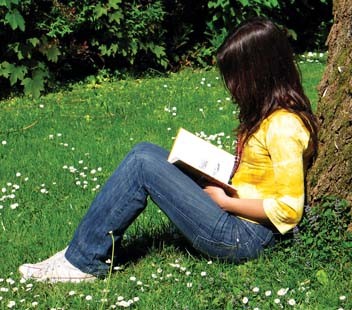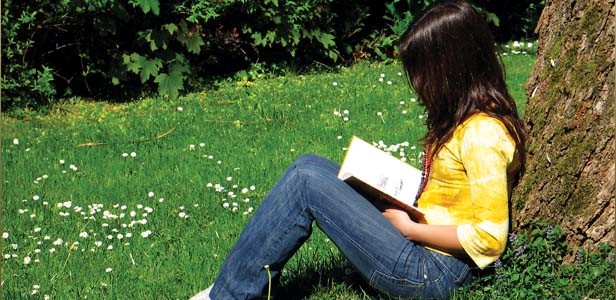I was a bookish boy. I read at school and at home, encouraged by boredom and the summer reading programs at Lincoln Library. I didn’t read to learn; I read to be entertained. (There is no spur to youthful literacy as sharp as crap TV.) I plowed through the entire collection of nonfiction — it didn’t take long — at the Matheny School library. My favorite fare was expurgated biographies of famous men and women from Sun Yat-sen to Mozart. I learned about composers of music I’d never heard, liberators of countries whose names I couldn’t pronounce, civilizations I couldn’t imagine.
I wandered these alien neighborhoods, unaware that teachers and librarians were watching my every step to ensure that anything I might encounter was (in today’s terms) age-appropriate. Outside of school and the library, however, age-inappropriate literature lurked on newsstands like muggers in the bushes. I read comic books, of course, and at 12 I bought a copy of Jack Douglas’s Never Trust a Naked Bus Driver at Walgreens. Since I got only about half the references, it effectively ended up costing twice the 35 cents I paid for it.
And of course Mad. Mad was damned as bad for kids, the way cigarette smoking would be damned a generation later. But reading Mad at my age was like smoking without inhaling. Like most preteens, I found much of its humor incomprehensible, partly because I was too young, mostly because I was too goyishe.
Mine was not a family of readers, but we had the usual souvenirs of aborted book club memberships that dignified most newly middle-class living rooms in those days. The only one I ever read was a two-volume collection of jokes and humorous anecdotes by Bennett Cerf. In it I “learned” that the Grand Tetons, translated, means “Sweater Girl Mountains.”
Too bad that question never came up on a geography test. It would have been worth an “F” to experience the after-school conference with my geography teacher.
As I grew older, I did not become more worldly, only unworldly about new things. I entered high school escorted by a posse of bad influences — the Portable Nietzche and such novels as William Golding’s Free Fall and (in translation of course) works by Camus and Malraux and Darkness at Noon by Koestler and lots of Richard Hofstadter (The Age of Reform, Anti-intellectualism in American Life, Paranoid Style in American Politics) and the inevitable Growing Up Absurd by Paul Goodman, but also his Communitas and Utopian Essays and Practical Proposals. And somewhere in there must have come The Catcher in the Rye. As for the effect on me of Updike’s The Centaur, I will say only that when I was younger I was stimulated by being confused; that book left me confused because I was stimulated.
And no, it is not only sex that one can encounter too young. My advanced education to that date had come mainly from Sunday morning TV. Putting a book like Walter Kaufmann’s Critique of Religion and Philosophy in my hands at 17 was like giving a clarinet to a chimpanzee.
Joseph Epstein — Illinois’s best bet in the E.B. White Career Stakes for personal essayists — once suggested that certain authors ought or ought not to be read before or beyond certain ages. “No Thomas Wolfe after eighteen,” he ruled, “no F. Scott Fitzgerald beyond thirty; no Chekhov before thirty; no Proust before forty; no James Joyce beyond fifty.” Such sanctions are beside the point. No one under thirty could finish anything by Chekhov or Proust, just as anyone past thirty would find much in Wolfe or Fitzgerald as exasperating as, well, Wolfe and Fitzgerald. The mistake is not reading books too young, but reading them only when one is young.
Modern educationalist gospel holds “classics” like Great Expectations, Romeo and Juliet, Hitchhiker’s Guide to the Galaxy and Huckleberry Finn to be fit fare for bright middle-schoolers. Age-appropriate indeed: The heroes respectively are a little boy who helps a killer on the lam, two underage lovers, a runaway from respectability and repressive guardians and a pissed-off teenager who causes the elimination from the universe of all possible Earths, parents and all.
Unfortunately, such books don’t have the subversive social effects so feared by the right. Ignorance is the best inoculation against the subversive — a truth that the book-banners seem to have forgotten. A kid fluent enough to read prose aimed at grownups will not read the way a grownup does. Words are just words to a child lacking experience of the things they describe. The salacious will appear merely silly, the blasphemous bad manners.
The fretful parent can safely let a child read all the dangerous, over-stimulating, misleading and disturbing books she wants. The only thing she is likely to learn, happily, is also the most valuable, and that is how much she has to learn.
Contact James Krohe Jr. at [email protected].



